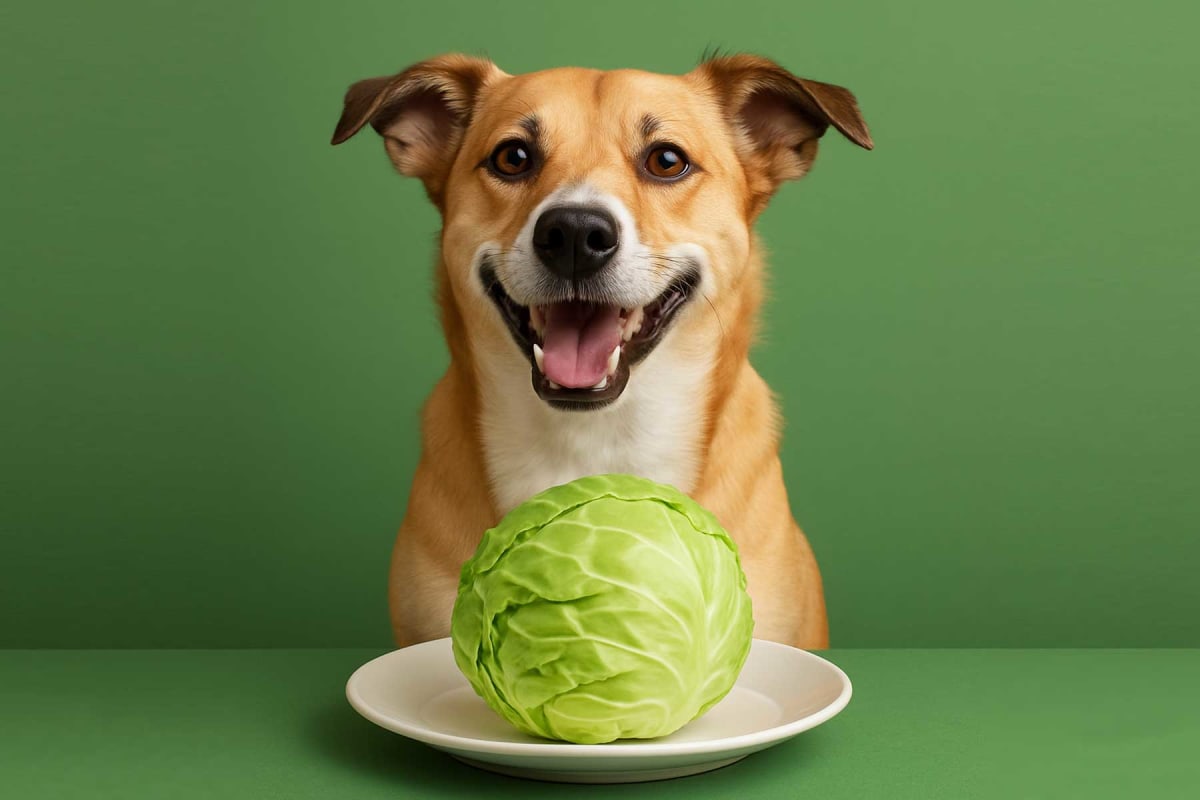
Can dogs eat cabbage?
Can dogs eat cabbage?
Can dogs have cabbage?
Cabbage is a nutritious vegetable packed with vitamins and minerals, but is it safe for your canine companion? Yes, dogs can eat cabbage! This leafy cruciferous vegetable is non-toxic to dogs and can actually provide several health benefits when served properly. Let's explore everything you need to know about feeding cabbage to your dog.
Is cabbage good for dogs?
Cabbage offers several health benefits for your canine companion:
Contains antioxidants to help fight free radicals and potentially reduce inflammation
Packed with fiber to support digestive health and regulate bowel movements
Contains vitamins C and K, which support immune function and blood clotting respectively
Has a high water content for extra hydration
Low in calories, an ideal treat option for dogs on weight management plans
Additionally, cabbage contains compounds called isothiocyanates, which some studies suggest may have cancer-fighting properties. These same compounds, however, can cause gas if your dog consumes cabbage in large quantities.
Can dogs eat raw cabbage?
Dogs can eat raw cabbage in small amounts, but it may be harder for them to digest than cooked cabbage. Shredding or finely chopping raw cabbage makes it easier for your dog to chew and digest, reducing the risk of choking. However, it's still more likely to cause gas or stomach upset.
If you're introducing raw cabbage to your dog's diet for the first time, start with a tiny amount and monitor for any digestive upset.
Can dogs eat cooked cabbage?
Cooked cabbage is often the better option for dogs. Light steaming or boiling makes cabbage easier to digest and partially breaks down the thiocyanate compounds that could potentially affect thyroid function in very large amounts.
Cabbage cooked with onions, garlic, excessive salt, or spices can be harmful to dogs. Plain, lightly cooked cabbage without any seasonings is the safest choice for your furry friend.
Can dogs eat red cabbage?
Yes, dogs can eat red cabbage. In fact, red cabbage contains even more beneficial antioxidants than green cabbage, thanks to the anthocyanins that give it its purple-red color.
These additional antioxidants may provide extra immune system support and anti-inflammatory benefits. Red cabbage can be prepared and served to your dog in the same ways as green cabbage – lightly cooked and in moderation.
Can dogs eat Napa cabbage?
Napa cabbage (also known as Chinese cabbage) is safe for dogs and provides similar nutritional benefits to other cabbage varieties. Its milder flavor and softer texture may be more appealing to picky eaters.
The tender leaves of Napa cabbage are easier to chew and digest than regular cabbage, making it a good option for smaller dogs or those with sensitive stomachs. As with other cabbage varieties, serve Napa cabbage plain and in moderation.
How to safely prepare cabbage for your dog
With proper preparation and moderation, cabbage can be a healthy, low-calorie treat that adds variety to your dog's diet while providing beneficial nutrients. Follow these simple guidelines:
Wash thoroughly to remove any pesticides or chemicals.
Remove the tough core and outer leaves.
Chop into small, bite-sized pieces to prevent choking.
Steam or boil lightly without adding salt, butter, oils, or seasonings.
Allow to cool completely before serving.
You can mix small amounts of cabbage with your dog's regular food or offer it as a standalone treat. Some dogs enjoy frozen cabbage pieces as a crunchy summer treat that helps clean their teeth.
How much cabbage can I give my dog?
Cabbage and other treats should make up no more than 10% of your dog's daily caloric intake. For most dogs, this means just a few tablespoons of chopped cabbage, depending on their size. Start with tiny amounts—a teaspoon for small dogs or a tablespoon for larger breeds—and monitor afterwards.
Moderation is key. Too much cabbage can cause gas, bloating, and digestive discomfort in dogs due to its fiber content and natural compounds.

When to avoid giving cabbage to your dog
While cabbage is generally safe, there are situations when you should avoid giving it to your dog:
If your dog has hypothyroidism, consult your vet before feeding cabbage, as large amounts could potentially affect thyroid function.
Dogs with sensitive stomachs or a history of gastrointestinal issues may not tolerate cabbage well.
If your dog shows signs of gas, bloating, or diarrhea after eating cabbage, discontinue offering it.
Dogs on specialized diets for medical conditions should only have cabbage if approved by your veterinarian.
Always introduce any new food gradually and watch for adverse reactions. If you notice any concerning symptoms after feeding cabbage, contact your veterinarian.
Other safe vegetable treats
If your dog enjoys cabbage, they might also appreciate these other vegetables that are safe for dogs:
Broccoli (in small quantities)
Carrots
Cucumber slices
Green beans
Pumpkin (cooked & plain)
Sweet potato (cooked & plain)
As with cabbage, these vegetables should be properly prepared and given in moderation as treats, not as meal replacements.
Keep in mind, every dog is unique, with individual preferences and tolerances. What works for one dog may not work for another. Always consult with your veterinarian before making significant changes to your dog's diet or if you have concerns about introducing new foods.